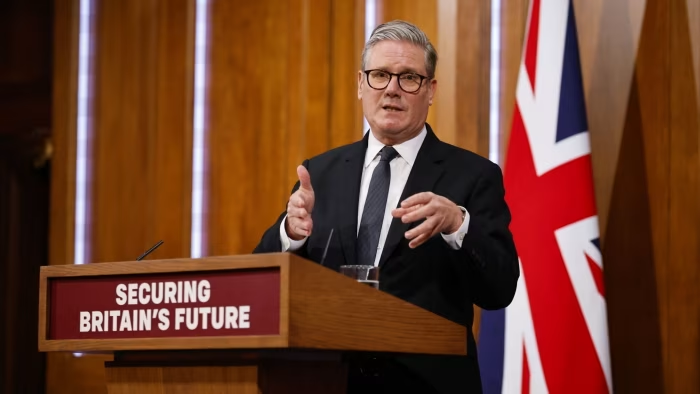The United Kingdom government, led by Prime Minister Keir Starmer on Monday published an 82-page UK Immigration White Paper titled ‘Restoring Control Over the Immigration System’.
This document outlines radical reforms to address what has been described as a “chaotic” immigration system inherited from the previous governments, which saw net migration soar to 906,000 in 2023.
For the year ending June 2024, there was an estimated net migration to the UK of 728,000, marking a 20% drop from the previous 906,000, partly down to the government’s ban on dependants for students on UK postgraduate-taught courses.
Starmer said the new UK immigration white paper is aimed at reducing migration, boosting domestic skills, and restoring public trust, something that will set a new course for migrants from Africa.
The White Paper also introduces sweeping changes across work, study, and family migration routes.
Here are 12 key things to know about the UK immigration white paper as African migrants are among the hardest-hit:
1. Net Migration Reduction Goal
The UK immigration white paper promises a significant reduction in net migration, with measures projected to cut immigration by approximately 100,000 annually. While no specific cap is set, Starmer emphasized that migration will fall as part of the government’s Plan for Change, addressing pressures on housing and public services.
2. Skilled Worker Visa Threshold Raised
To curb lower-skilled migration, the skilled worker visa qualification threshold will rise to RQF Level 6, equivalent to a bachelor’s degree. Salary thresholds will also increase, ensuring only highly skilled workers qualify. This reverses the trend of issuing lower-skilled visas, which surged between 2021 and 2024.
3. Closure of Overseas Care Worker Recruitment
The new UK immigration white paper revealed that the social care visa route will close to new overseas applicants, ending reliance on international care workers.
Care workers will no longer be recruited from overseas, which will force providers to hire British nationals or extend visas to overseas workers already in the country.
Existing workers can extend visas or switch sponsors until 2028.
4. Extended Settlement Period
According to the UK immigration white paper, the standard qualifying period for settlement (indefinite leave to remain) will double from five to ten years.
This means most migrants will need to reside in Britain for at least ten years, not five before they can apply for settled status and begin the path to gaining full citizenship.
Exceptions will be made for high-contributing individuals, such as doctors, nurses, or AI experts, who may be fast-tracked.
5. Tougher English Language Requirements
New English language tests will apply across more immigration routes, including dependants of workers and students, starting at the A1 (Basic User) level. The UK immigration white paper said this policy was aimed at promoting integration, with assessments tracking improvement over time.
6. Graduate Visa Duration Slashed
The post-study work visa for international graduates will be reduced to 18 months, limiting their ability to stay in the UK after completing their degrees.
7. Employer Accountability Strengthened
Employers must demonstrate investment in UK skills before sponsoring overseas workers. The Labour Market Evidence Group (LMEG), comprising the Migration Advisory Committee, Skills England, and others, will scrutinize sectors overly reliant on international recruitment, such as IT and construction.
8. Deportation and Removal Reforms
The UK immigration white paper introduces faster deportation for foreign nationals committing crimes, including those on the Sex Offenders Register.
New rules will simplify removal processes, and legislation will clarify that Parliament, not the courts, decides who stays, addressing the overuse of Article 8 (right to family life) arguments.
9. Focus on High-Skilled Talent
The UK will remain open to global talent in science, technology, and healthcare. Targeted routes for “the brightest and best” will expand, with faster visa processes for high-skilled professionals critical to strategic industries.
10. Overstayers questioned
The Government will restrict visas for nationalities with higher overstay or asylum rates, including Nigeria and countries in the Middle East.
11. Immigration Skills Fee Increased by 32%.
The Immigration Skills Charge (ISC), paid by UK employers sponsoring migrant workers under the points-based system, has been increasing by 32%. The UK immigration white paper said the hike aims to encourage investment in domestic training and reduce reliance on overseas labour.
12. Higher standards
The UK immigration white paper also includes new powers to deport foreigners who commit offences in the country.
Currently, the government is only informed of foreign nationals who receive prison sentences.
Under the new arrangements, all foreign nationals convicted of any offence will be flagged to the government.





